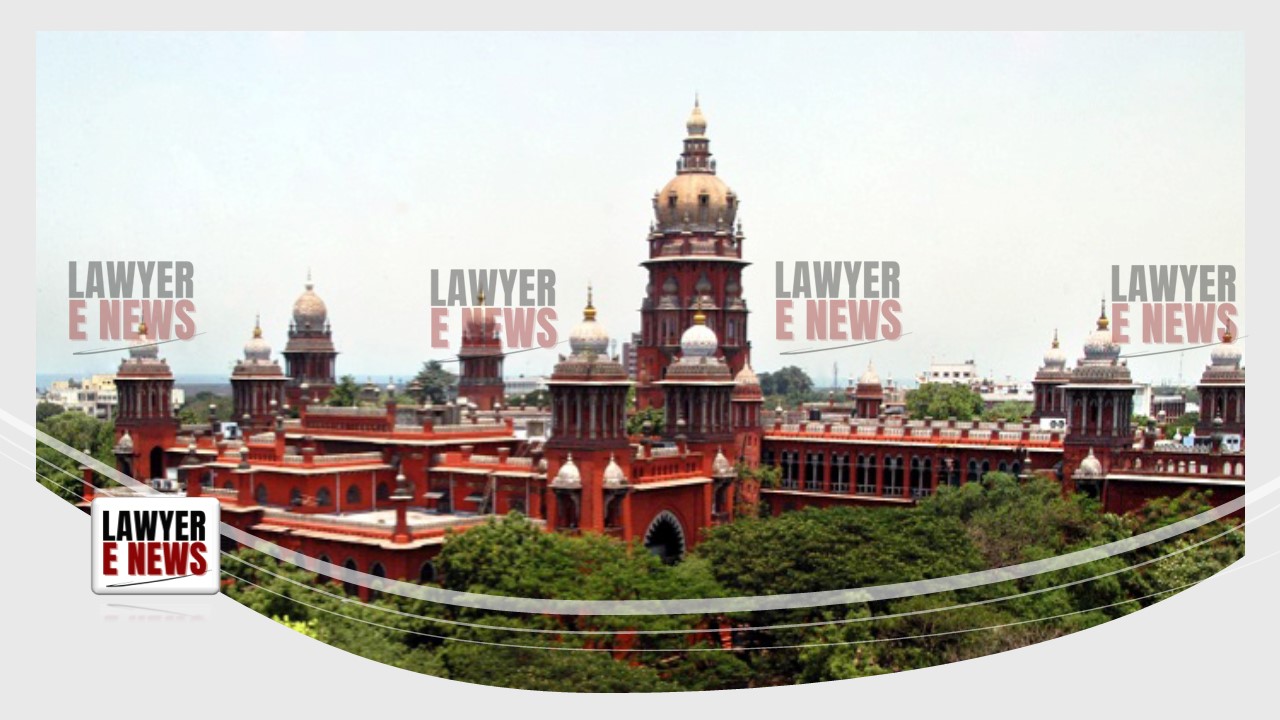-
by Admin
15 February 2026 5:35 AM



"A reasoned order is the foundation of judicial and quasi-judicial decision-making. Any decision bereft of reasons and procedural fairness is contrary to natural justice," observed Justice Abdul Quddhose.
On November 21, 2024, the Madras High Court quashed an order of the Deputy Controller of Patents and Designs, refusing to grant a patent to Intervet International B.V. The Court highlighted procedural lapses, insufficient reasoning, and violations of the principles of natural justice, remanding the matter for fresh consideration by a different officer. The appeal stemmed from the Deputy Controller’s 2017 decision rejecting the patent application for crystalline forms of a chemical compound, citing non-patentability under Sections 3(d) and 3(e) of the Patents Act, 1970.
Intervet International B.V., in collaboration with Microbial Chemistry Research Foundation, had sought a patent for crystalline forms of 20,23-dipiperidinyl-5-O-mycaminosyl-tylonolide. The appellants argued that their invention demonstrated superior physical and chemical stability, offering advancements over existing forms. Despite receiving patents for the same invention in other jurisdictions, including the USA, Russia, Japan, and Australia, their Indian application was denied.
The Deputy Controller concluded that the invention lacked an enhancement in therapeutic efficacy as required under Section 3(d) and dismissed the application without adequately addressing expert evidence and prior art discrepancies presented by the appellants.
Justice Quddhose criticized the Deputy Controller for failing to provide a cogent explanation for rejecting expert declarations and evidence submitted by the appellants. Referring to the affidavit of Dr. Ralf Warrass, an expert in the field, the Court noted:
"The impugned order does not indicate why the expert’s declaration demonstrating the higher stability of the claimed crystalline form was disregarded. Stability is integral to therapeutic efficacy, and dismissing it without reasoning violates principles of natural justice."
The Court also noted that the prior art documents (D1 and D2) relied upon by the respondent did not fully disclose the elements of the appellants’ claimed invention. It held:
"Despite acknowledging that D1 and D2 do not disclose the crystalline forms claimed by the appellants, the respondent failed to address this inconsistency. Such omissions undermine the credibility of the impugned order."
The Court underscored the importance of procedural fairness, highlighting the appellants’ lack of opportunity to address the alleged deficiencies in their claims. It observed:
"The appellants were not given an opportunity to substantiate their claims of enhanced therapeutic efficacy, contrary to the explanation under Section 3(d). This procedural lapse renders the impugned order untenable."
The judgment emphasized that a quasi-judicial authority must provide adequate reasoning to support its conclusions, citing the Supreme Court’s decision in Manohar v. State of Maharashtra (2012).
The Court took note of the fact that the same invention had been granted patents in multiple jurisdictions. It stated:
"While international patent approvals are not binding, they carry persuasive value, especially when the reasoning behind the rejection in India is unsubstantiated."
Justice Quddhose pointed out the failure to adhere to the guidelines issued by the Patent Office in October 2014, which stress consistency and detailed analysis in examining pharmaceutical patents.
The Court set aside the 2017 order, remanding the case for fresh consideration. It directed that the matter be handled by a different officer to avoid potential bias. The Court stipulated:
The respondent must reconsider the application on its merits, adhering to the observations in this judgment.
The appellants should be given an opportunity to file amendment applications to strengthen their claims, provided such amendments align with the original specifications.
The respondent must issue a fresh order within six months.
This judgment underscores the critical importance of reasoned decision-making and procedural fairness in intellectual property disputes. By addressing the gaps in the examination process and ensuring adherence to natural justice, the Madras High Court has reinforced the need for transparency and accountability in patent adjudication.
Date of Decision: November 21, 2024
